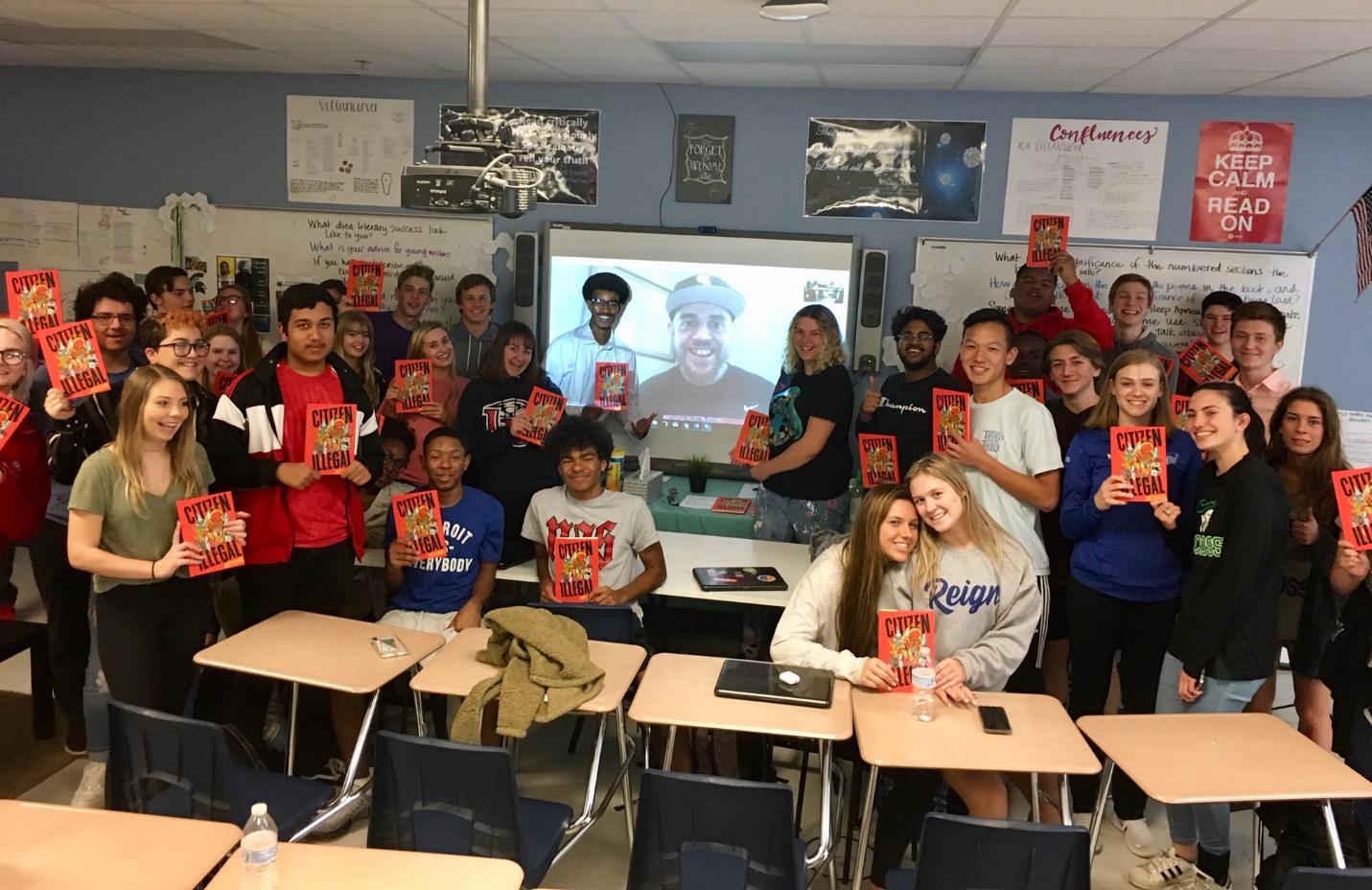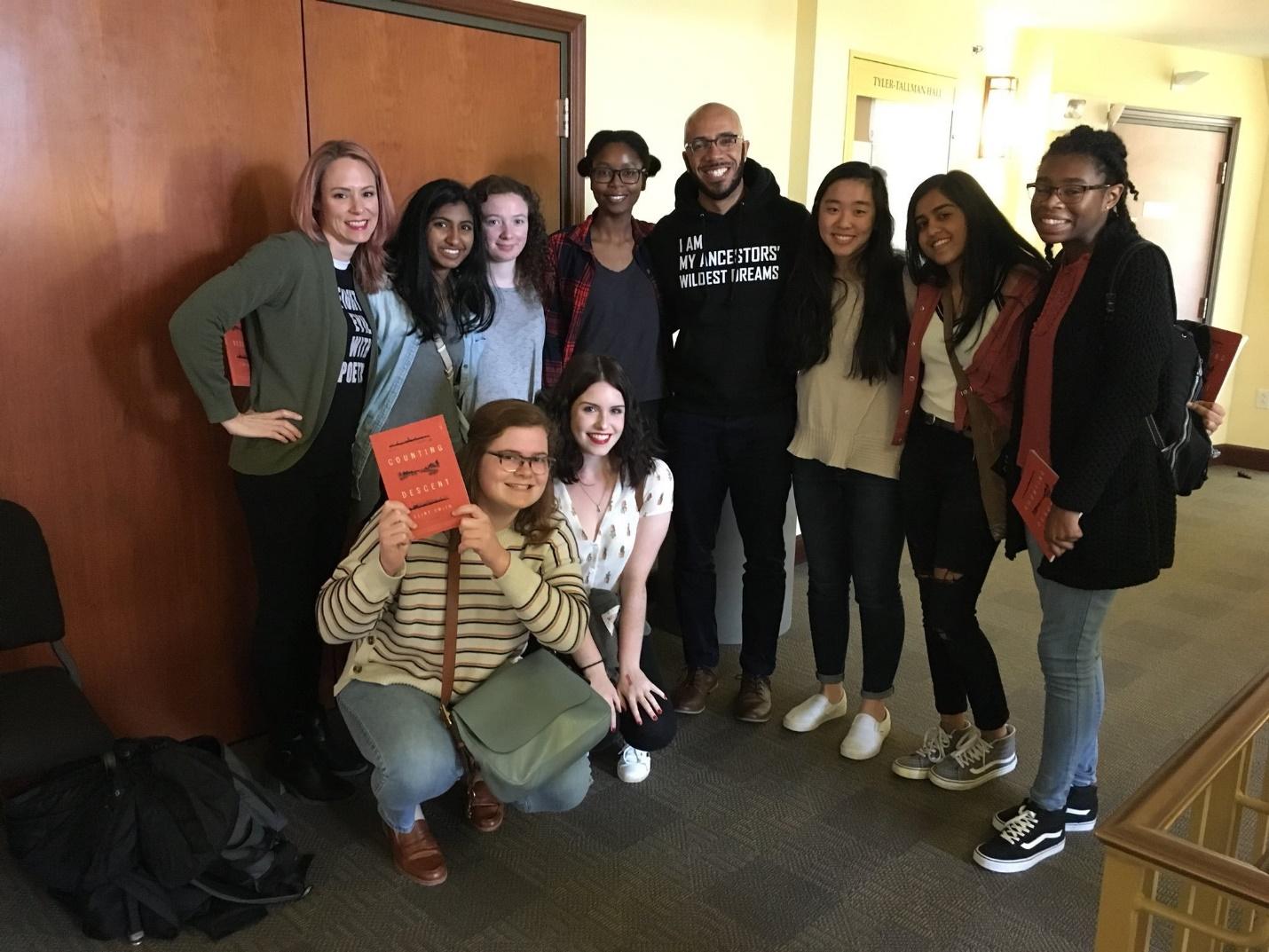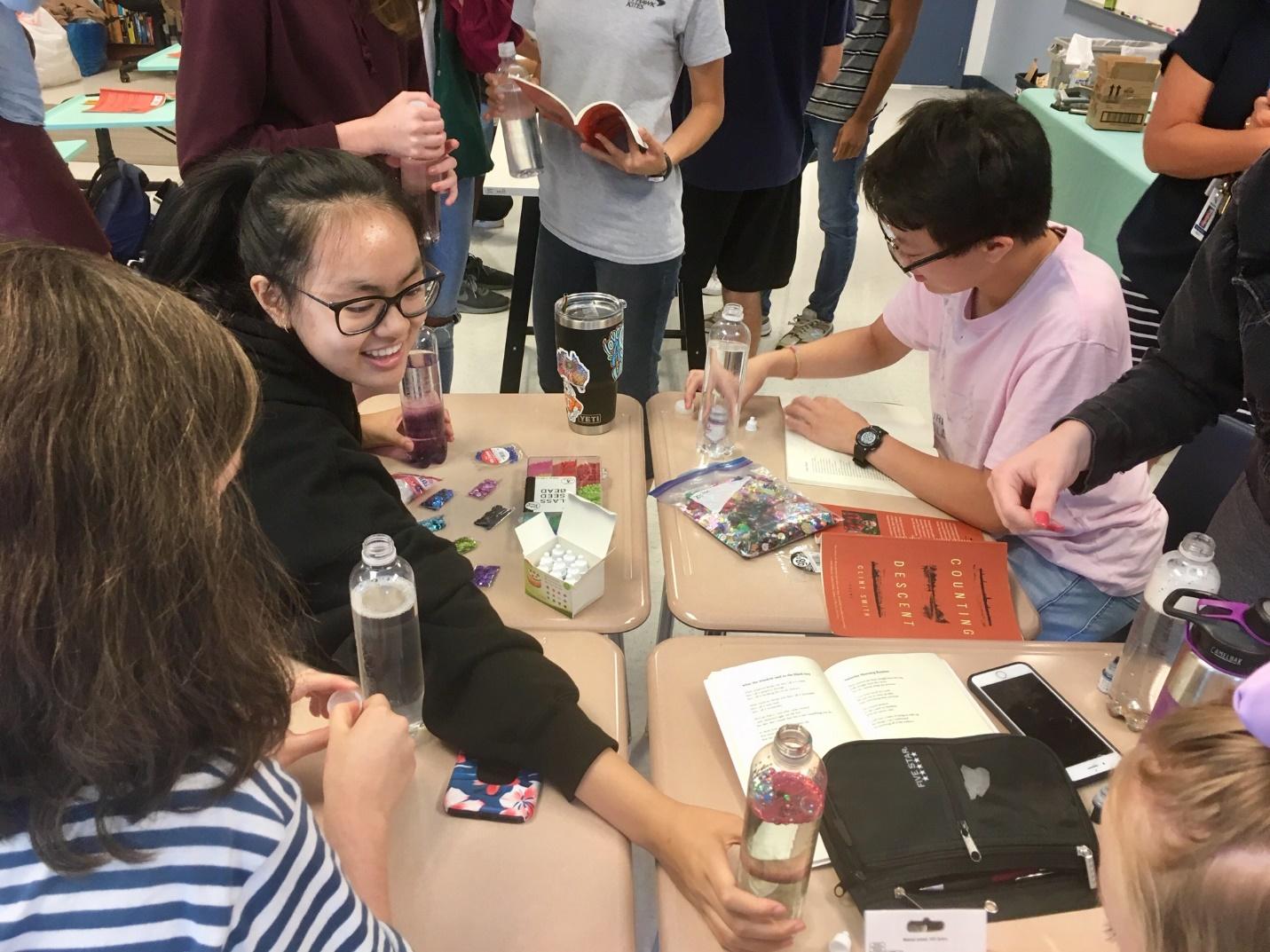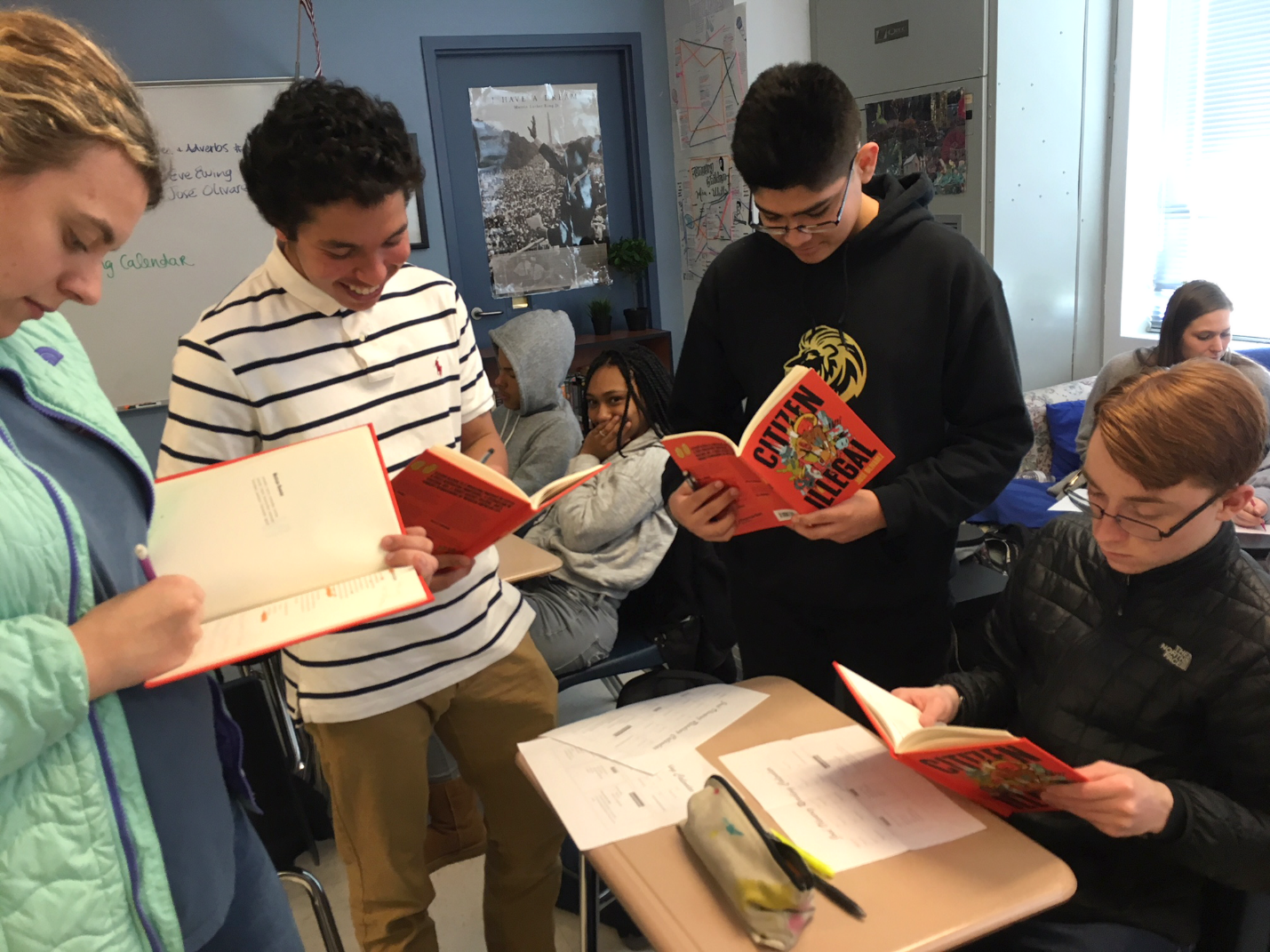Poetry: it's one of the oldest forms of literature. From the sonnets of Petrarch and Shakespeare to the musings of the Romantics and the Transcendentalists, classic poetry has captured the imaginations of students for generations.
And while canonical poetry remains a cornerstone of ELA education, many are calling for greater diversity in the poetry curriculum. One of the educators leading the charge is Melissa Alter Smith, creator of the #TeachLivingPoets hashtag and TeachLivingPoets.com.
To learn more about this incredible movement, we invited Melissa to share her thoughts about the power of poetry and how teachers and students can explore this medium in the classroom.
What inspired you to create the #TeachLivingPoets hashtag?
Seeing the positive impact that teaching living poets had in my classroom, and the way that it was inspiring students encouraged me to share on social media. It was Kavek Akbar's response tweet that inspired the hashtag. He tweeted, "Thank you for teaching living poets," which sparked #TeachLivingPoets as a hashtag. I intended it to be a way for teachers to share ideas and resources and favorite poems; I had no idea it would turn into a grassroots movement in ELA education.

One of the core values of the #TeachLivingPoets movement is to "complicate the canon." How would you define this goal, and why should educators consider this approach to teaching poetry?
I was on a panel at AWP, and co-panelist and poet José Olivarez said that he remembers being in high school English class thinking that you had to be an old British guy to write poetry. What a disservice only teaching canonical poetry does to our students! We have such an amazing array of individuals in our classes, and they should all be able to see themselves in the poetry they read at school. This is our responsibility as teachers—to not necessarily close the door on the canon—but to open it wider to allow more voices to enter into the classroom. We need to affirm and validate our students with language and topics that speak to them, and contemporary poetry is a perfect vehicle.

Recently, you were featured in The Council Chronicle, the NCTE's quarterly journal. In your article, you discussed the unforgettable experiences your students have had interacting directly with poets after studying their work. What's your advice for teachers who want to invite poets to their classrooms but don't quite know how to start?
There's a post on TeachLivingPoets.com called "10 Steps to Planning a Successful Poet Visit" that actually goes through the process step by step, so I would refer them there first. I would also encourage teachers to seek out local poets and teaching artists, and to really try to make their best case scenario a reality.

Your website is full of valuable resources for teachers, including creative activities perfect for spicing up any poetry unit. Which of your poetry lessons do you think students have found to be the most memorable?
Students love the tone bottle activity created by NC teacher Valerie Person. The hexagons by Tia Miller and tri-color annotations by Donna Vorreyer elicit some of the best discussions I've ever heard my students have. I just get to walk around and listen to them richly engaging with each other and with the poem, and those are my favorite days as a teacher. They also had a lot of fun with the Twitter slow chat we did back in February with students all over the nation.

This may be a tough question to answer, but who are some of your favorite living poets?
This is incredibly difficult because my answer changes on almost a daily basis with who has a new book or poem out, or what I've recently read, or even the mood I'm in. So I'll do my best. Today, I would say Clint Smith, H. Melt, R.A. Villanueva, Aimee Nezhukumatathil, Leila Chatti, Kaveh Akbar, José Olivarez, Victoria Chang, Ilya Kaminsky, Marwa Helal, Ross Gay, and I really could go on and on… I also highly suggest the most recent BreakBeat Poets anthology, Vol. 4: LatiNext from Haymarket Books—it’s phenomenal.
About Melissa Alter Smith
Melissa Alter Smith is a National Board Certified high school English teacher in Charlotte, NC. She is 2017 District Teacher of the Year, an AP Reader, and an NCETA Executive Board member. She has presented at NCTIES, WVELA, NCETA, NCTE-WLU Summer Institute, NCTE, AWP, and the AP Annual Conference, and has co-authored a book on teaching poetry (forthcoming in November 2020 with NCTE). Melissa is also a co-author of the Instructor's Manual and AP Correlation Guide for the 13th high school edition of The Norton Introduction to Literature.
A runner-up for NCTE and Penguin Random House's Maya Angelou Teacher of Poetry Award, Melissa is also a contributing author for APLitHelp.com and the NCTE Verse project. She is the creator of the #TeachLivingPoets hashtag and teachlivingpoets.com. She was the Keynote speaker at the NCETA 2019 spring symposium, featured on LitHub.com, in NEATE News, NCTE's quarterly journal Council Chronicle, and on Education Talk Radio. Her work is focused on complicating the canon, supporting teachers, and empowering students through poetry. You can follow her on Twitter and Instagram @MelAlterSmith.
Images courtesy of Melissa Alter Smith